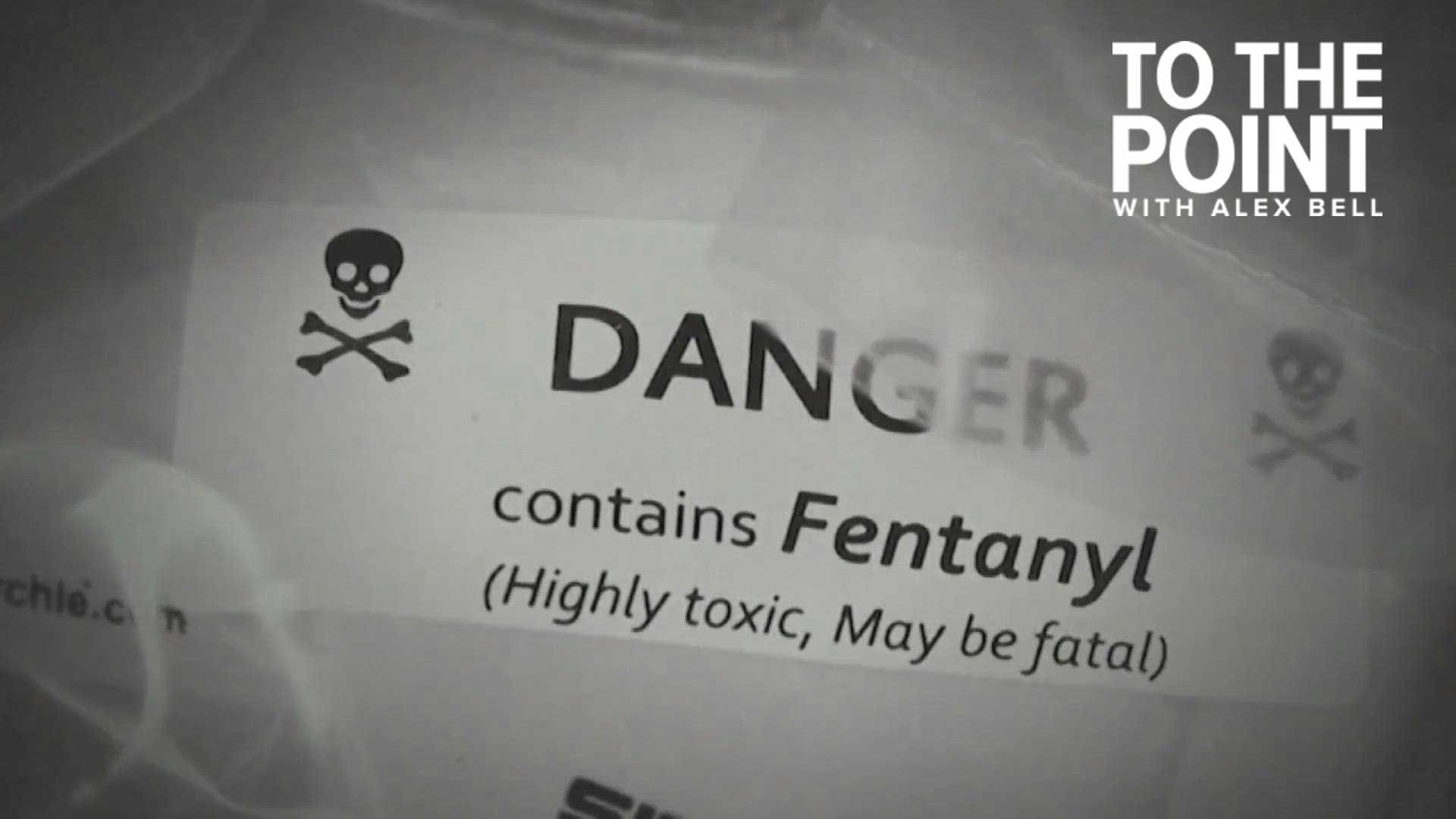SACRAMENTO, Calif. — Jef Dawkins lost his teen daughter to fentanyl after he says a friend’s mom gave her a pain pill with a deadly dose of the drug.
That mom is now in jail.
This comes as more and more district attorneys throughout the state are going after people suspected of supplying the fentanyl leading to a death.
The girl Dawkins considers a daughter, 15-year-old Kamaria Evans, will always be in his heart.
“She's not my biological child; I've just raised her from her first steps,” said Dawkins.
He has a tattoo of Kamaria and her younger sister on his arm and wears Kamaria’s ashes in bracelet.
In July of 2020, Kamaria went to her girlfriend’s house and experienced menstrual cramps. Dawkins says the girlfriend’s mom, Stephanie Buggs, offered Kamaria half a pain pill. It turned out to contain fentanyl — enough to end Kamaria’s life.
“And as far as what I was told, she laid down and never woke up,” said Dawkins.
He received a middle-of-the-night phone call from Buggs.
“Her words were, ‘I don't know what happened. Kamaria is not breathing… and she's already on her way to the hospital,’” said Dawkins.
He rushed to his daughter’s side in time to see the medical staff try to revive her, but she was pronounced dead shortly after his arrival.
“I would never wish this type of pain on anyone because it's not something that you can get over at any point in time,” said Dawkins. “You have to live with that.”
He said the autopsy shows Kamaria died of fentanyl poisoning. The Sacramento Police Department tells ABC10, the county coroner’s office alerted them that Kamaria’s death was suspicious. Now Buggs is facing a felony charge of child endangerment.
“I don't need her to spend life in jail. I don't think she did it maliciously. But just because you didn't do it maliciously doesn't mean you shouldn't have to pay the consequences for your mistakes,” said Dawkins. “I'm not saying you knew that that pill was fentanyl, but you knew it wasn't prescribed to you.”
Buggs was arrested back in February. Keep in mind, Kamaria died just over three years ago. So why did it take so long to make the arrest? As Sacramento County District Attorney Thien Ho explains, building a case involving fentanyl is not simple.
“Sometimes we're working the investigation on the front side of it, in terms of — before the individual is arrested, we're building that case, we're going through the phones, we're going through search warrants and we’re talking to witnesses,” said Ho. “Other times, the individual has been arrested and now we're doing additional investigation, so it's on both ends of it.”
That’s why the his office is developing a rapid response team to address the fentanyl crisis.
New numbers from the state show fentanyl-related deaths in California nearly quadrupled between 2019 and 2022. In 2019, the state reports 1,603 fentanyl-related deaths. In the newly released preliminary numbers for 2022, the state shows at least 6,095 people died from fentanyl poisoning.
Sacramento County health officials tell ABC10 it’s a growing epidemic in the Black community.
Last year, 16% of fentanyl overdoses in the county were among Black people. Already this year, Black people make up 26% of overdose deaths. For context, they make up just about 10% of the county’s population, so their fentanyl overdose death rate is disproportionately high.
“Fentanyl is the reason my daughter is not here,” said Dawkins.
Buggs is in jail pending the outcome of her case and is next due in court Sept. 28.
Dawkins says there’s nothing the criminal justice system can do to satisfy him.
“My daughter is not here anymore. Nothing is going to bring her back,” he said. “What I would want is for no more parents to have to go through what I'm going through. That's the only victory for me.”
What’s being done?
For one, more district attorneys are cracking down on fentanyl dealers and providers. Last month, a Placer County man was the first person in the state to be convicted of murder in a fentanyl death, stemming from a 2022 case that killed another 15-year-old girl.
Also, thanks to settlement money from opioid manufacturers, more than $7 million is coming to Sacramento County. That’s according to county health officials, who say it will be spent on outreach, education and prevention.
Health officials also recommend people add Narcan, or the general naloxone, to their first aid kits. It’s called a miracle drug. It’s an opioid overdose reversal drug. It’s administered as an easy-to-use nose spray. If you give someone Narcan but it turns out they weren’t overdosing on opioids, it doesn’t hurt them, medical professionals say. It’s available over the counter. If you administer Narcan, still call 911.



















